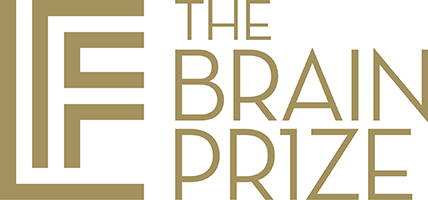Place your votes: BNA Council & Committee elections
22nd July 2024
5th Mar 2019
The BNA would like to congratulate the four French winners of this year’s Brain Prize, Elisabeth Tournier-Lasserve, Anne Joutel, Hugues Chabriat, and Marie-Germaine Bousser, for their outstanding research into small vessel strokes in the brain.
BNA Chief Executive, Anne Cooke, greeting the news, said: “We are delighted to see our French colleagues being deservedly awarded for the vital contribution they have made over the past 30 years towards developing diagnosis and treatment for strokes and CADASIL.
“It’s a timely reminder of the importance of scientific collaboration across Europe. How we must keep championing and nurturing our mutual passion for partnerships, new perspectives, and exchanging ideas.”
The one million Euro Brain Prize is annually awarded by The Lundbeck Foundation to  active scientists who have provided an exceptional contribution to the field of neuroscience. This year’s Brain Prize winners are being awarded for their comprehensive, in-depth and relentless research efforts, to describe, understand and diagnose the most common hereditary form of stroke, CADASIL (cerebral autosomal dominant arteriopathy with subcortical infarcts and leukoencephalopathy).
active scientists who have provided an exceptional contribution to the field of neuroscience. This year’s Brain Prize winners are being awarded for their comprehensive, in-depth and relentless research efforts, to describe, understand and diagnose the most common hereditary form of stroke, CADASIL (cerebral autosomal dominant arteriopathy with subcortical infarcts and leukoencephalopathy).
Together, they have solved the puzzle and shown that this is a hereditary disease, caused by a mutation in the NOTCH3 gene on chromosome 19. The team has developed a diagnostic test and is involved in testing a potential treatment in animal models.
This year's prize ceremony will take place on the 9th May in the Black Diamond Library in Copenhagen.
The Winners
Marie-Germaine Bousser is a neurologist and she made the preliminary clinical observations. Professor Bousser realised their significance and gathered the expertise from a variety of research disciplines necessary to elucidate all aspects of the disease, which was named CADASIL. She has been closely involved at all stages of the CADASIL story and has made significant contributions to other fields of stroke research.
Hugues Chabriat is a neurologist and has strong expertise in neuroimaging of brain disorders. He has provided valuable knowledge about the natural history of the disease. Using neuroimaging he established diagnostic criteria for CADASIL and described the relationship between the brain lesions and symptoms, the long-term prognosis and the risk factors of the disease.
Anne Joute is a neurologist and neuroscientist with strong expertise in small brain vessels. In collaboration with Professor Elisabeth Tournier-Lasserve, Dr Joutel was responsible for elucidating the genetic basis of CADASIL and the disease mechanisms. She developed mouse models to prove that the pathogenic mutations cause accumulation of a protein in the walls of the blood vessels. She also developed a diagnostic test and was behind the first attempts to develop a treatment.
Elisabeth Tournier-Lasserve is a clinical and molecular geneticist. Elisabeth Tournier-Lasserve was responsible, in collaboration with Marie-Germaine Bousser, for defining the phenotype and the genetic basis of CADASIL. She gathered all over Europe the families needed for molecular genetic investigation and in collaboration with Anne Joutel, Elisabeth Tournier-Lasserve identified the NOTCH3 gene as being the gene mutated in CADASIL, which allowed to devise a molecular diagnostic test for this disease.
Click here for further information on this year's winners and The Brain Prize